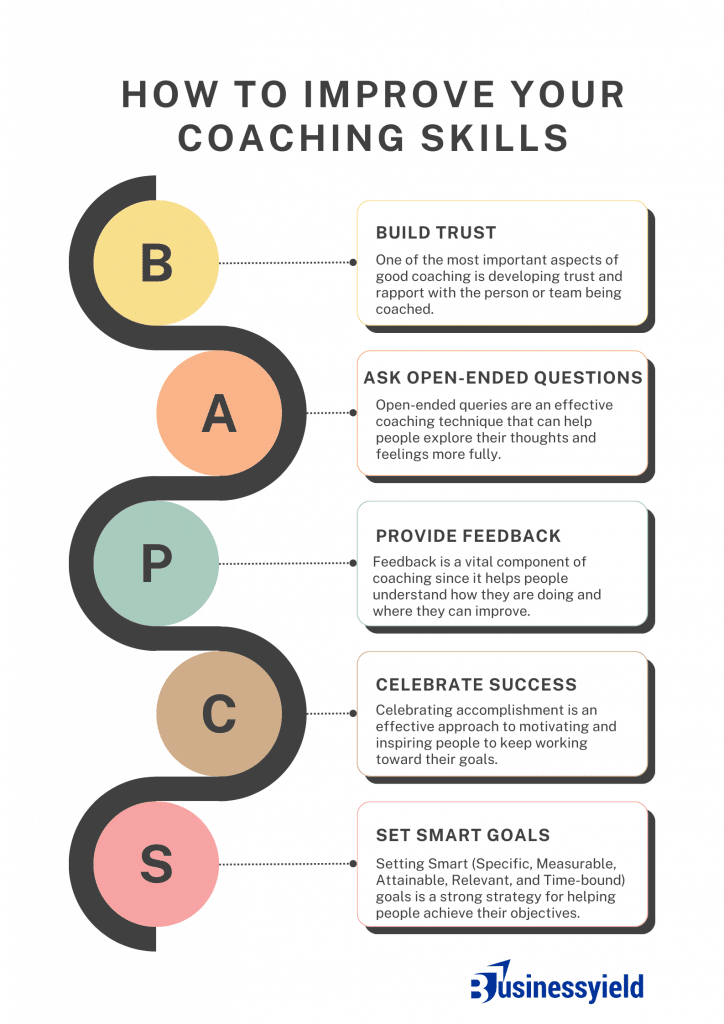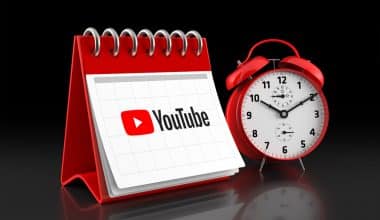Over the years, I’ve had my fair share of receiving feedback, some constructive, some not so much. For instance, I struggled to accept criticism early in my business writing career without getting defensive. I would find myself making excuses or dismissing the feedback altogether. It wasn’t until a wise mentor pulled me aside and said, “The day you stop being coachable (in other words, mastering coachability) is the day you stop growing,” that I had an aha moment.
That simple statement made me realize the immense value of coachability, the ability to receive feedback with an open mind and implement meaningful changes. According to a recent survey, 68% of employees struggle with effectively applying feedback from managers or coaches.
Coachability is a crucial skill that transcends personal and professional growth. And those who can adapt and embrace change are the ones who truly excel. However, developing coachability requires self-awareness, humility, and a growth mindset – traits that don’t come naturally to everyone.
So, how do you go about mastering coachability? Don’t worry; I have got you covered. I will share a few strategies I have implemented that have worked and, basically, all you should know about receiving feedback and implementing changes.
Key Points
- Effective coaching is critical because it enables people and teams to function at their peak
- Determining whether you are a coachable person or where you fit on the spectrum can be difficult.
- Choosing to be a lifelong learner increases your chances of success. Learning is strongly related to mastering, but how can you master a skill without receiving feedback?
What is Coachability?
The word “Coachability” refers to a set of mindsets and actions that allow us to integrate feedback to generate continuous personal growth and transformation. In other words, it’s the prerequisite for receiving and applying feedback and counsel with attention and boldness and maintaining the mental and emotional openness required to monitor and adapt to its influence continually. Coachability, in a larger sense, means learnability.
Understanding How Mastering Coachability Works
From experience, having a coach is considered a badge of pride among CEOs, signifying a commitment to personal development and leadership. Mastering coachability, on the other hand, refers to a person’s willingness to receive coaching and ability to use it constructively for personal development.
It focuses on the Openness Framework, which provides a road map for becoming coachable. But what is this framework about?
My research around this shows that the framework comprises four parts: being open to change, accepting criticism, taking action, and being responsible. To begin, being open to change requires acknowledging mistakes and embracing growth. Second, soliciting feedback highlights blind spots and speeds improvement. Coaches may guide but not execute the work; thus, you must be willing to act.
Finally, accountability ensures adherence to decisions, behaviors, and beliefs. As a result, learning coachability is a valuable skill for all leaders, regardless of status, and it is an important step in personal and professional development.
Mastering coachability is vital for leaders who want to grow personally and professionally.
How do I Accept Mastering Coachability?
During my journey to mastering coachability, I spoke with a qualified life and leadership coach with substantial business experience to further understand the concept of coachability and how to master it.
Throughout our chat, we outlined a three-step plan for becoming more coachable that anyone can follow.
#1. Have an Open Mind
The open mind is a mental state in which we understand that expertise and ego might act as blinders to our capacity to recognize alternatives and instead extend our field of vision to consider ideas and options that are only available to an open mind.
#2. Be Present During the Process
Coaching is all about being present in the moment.
When we pursue progress with a coachable attitude, we must avoid one additional danger: the tendency to focus our attention on the planned destination rather than the journey itself.
Developing in a deliberately open manner that emphasizes real presence alters the way we lead and communicate. We can accomplish this by bringing our real selves and remaining present in the
#3. Accept that Learning is Your Obligation
As I indicated at the beginning of this post, coaches’ abilities are not the main force behind learners’ progress. The motivating force is the learners’ desire to grow, develop, and improve.
For example, you can’t go to the gym, ask your trainer for upper body strength, and then return when ready.
The Value of Mastering Coachability
Effective coaching is critical because it enables people and teams to function at their peak. Coaching can boost productivity and creativity and build a healthy work atmosphere when done correctly. It can also help people learn new skills, overcome barriers, and achieve their goals. However, bad coaching can cause irritation, low morale, and poor performance.
How to Improve Your Coaching Skills

Let’s deviate a little to help you get a sneak peek at how coaches also invest in their skills to become better. Here are some great coaching suggestions and techniques that can be used in any circumstance.
#1. Build Trust
One of the most important aspects of good coaching is developing trust and rapport with the person or team being coached. Trust is vital because it helps people to feel safe discussing their thoughts, feelings, and concerns. Building trust involves carefully listening, being empathic, and exhibiting genuine interest in the person’s achievement. It is also necessary to create clear expectations and boundaries from the start so that everyone understands what to anticipate.
#2. Ask Open-Ended Questions
Open-ended queries are an effective coaching technique that can help people explore their thoughts and feelings more fully. Open-ended questions cannot be addressed with a simple yes or no response. They need more thought and reflection. Instead of asking, “Did you complete the task?” ask, “What challenges did you face while completing the task, and how did you overcome them?” This question style encourages individuals to reflect on their experiences and find growth opportunities.
#3. Provide Feedback
Feedback is a vital component of coaching since it helps people understand how they are doing and where they can improve. When giving feedback, coaches have to be specific, objective, and constructive. They have to concentrate on the person’s actions or performance rather than their personality or character.
#4. Celebrate Success
Celebrating accomplishment is an effective approach to motivating and inspiring people to keep working toward their goals. When people achieve their goals, it is critical to recognize their hard work and accomplishments. Celebrating achievement is as simple as expressing gratitude, writing a thank you card, or giving a small gift.
#5. Set Smart Goals
Setting Smart (Specific, Measurable, Attainable, Relevant, and Time-bound) goals is a strong strategy for helping people achieve their objectives. Smart goals are specific, so people understand exactly what they need to do. They are measurable, allowing progress to be monitored and assessed. They are attainable so people can feel a sense of success. Also, they are relevant, which means they are consistent with anyone’s values and interests. And they are time-bound, so there is a clear completion deadline.
Mastering Coachability.pdf
How Can Mastering Coachability Help Me Succeed?
Everyone should aspire to be coachable regardless of experience level, age, or educational background. Choosing to be a lifelong learner increases your chances of success. Learning is strongly related to mastering, but how can you master a skill without receiving feedback? This is when coaching comes into play.
Here are some examples of how being coachable can help you succeed:
#1. Develops a well-rounded individual
The more receptive you are to feedback, the better you will grow as a person, coworker, and employee.
#2. Allows you to stand out
True coachability is a rare trait in high demand among companies. The more open you are to feedback, the more valuable you will become.
#3. It makes you more collaborative
If you are prepared to listen to others’ perspectives with an open mind, you are more likely to earn their mutual respect. Transparency and idea-sharing are essential for a collaborative environment to thrive.
#4. Improves self-awareness
Have you ever heard someone remark, “I just don’t understand why I didn’t get the job?” Being open to feedback might give you a snapshot of how you appear to others, allowing you to self-correct. Being
#5. Coachable opens up several options for progress
Without improvement, you cannot achieve greater achievement, and close-mindedness leads to stagnation. Here are a few tips to help you enhance your coaching abilities.
Mastering Coachability (My Insightful Tips)
#1. Seek Feedback
The first step toward self-improvement is deciding where to begin. Determining whether you are a coachable person or where you fit on the spectrum can be difficult. Here are a couple of ways to determine where you are:
#2. Ask a colleague
Sometimes, the best evaluations are given by those who sit next to you. Don’t be scared to approach a colleague and inquire how they see your acceptance of feedback. Just remember to ask direct questions or provide examples.
#3. Take a Coachability Assessment Quiz
While these tests may not reveal the whole story, they can help you discover some general areas where you may struggle the most and provide guidance on how to respond to specific situations. Just remember to be truthful when answering the questions.
#4. Personal Evaluation
Hearing and accepting feedback can be difficult unless you understand how you receive it! That is why you must understand yourself properly. Specifically, your communication styles and interactions with people.
Personality type
Personality type can help you identify how you will react to and handle criticism. Understanding your stressors, motivators, and communication habits will help you improve your feedback acceptance.
Communication style
Knowing your professional love language can be immensely useful when dealing with sensitive subjects like criticism. Knowing your motivators helps you select the type of feedback you want.
#5. Receiving and Accepting
There is nothing scarier than learning about your unknown flaws. Even worse is hearing commentary that appears irrelevant or condescending. We’ve all had the dreaded “feedback sandwich” and know that the first “compliment” appears dishonest in many circumstances. That is when understanding different sorts of feedback and setting expectations comes into play.
#6. Setting Expectations
The importance of this stage cannot be overstated for both the feedback provider and the recipient. Nothing is worse than entering into a feedback session and leaving feeling like you accomplished nothing and learned nothing.
What is the strength of coachability?
Coachability is the willingness to receive feedback and the ability to improve. When you’ve reached a performance plateau in your career, aren’t leading your team successfully, or are struggling in business, leadership coaching can help you shift gears and get back on track.
Is being coachable a soft skill?
Yes, being coachable is a soft skill. Soft skills include customer service, timeliness, passion, and coachability.






